Retinol has been acclaimed as the Revolutionary Skincare Ingredient of all time – but what exactly is it and what does it do? Plus – should you be using it? Retinol is the scientific name for Vitamin A from which it is derived. It has been around for a very long time (decades) and even though there are side effects, if not used correctly, it still appears to be the Gold Standard of skincare.
The aging process is complicated – simply what happens is; spaces open up in your epidermis created due to the lack of collagen and/or elastic production. As we get older – cells like Fibroblasts start slowing down production of collagen. Once the spaces are open they rarely close, basically they just get bigger and bigger and the wrinkles get larger and deeper. Essentially intervention is required in the form of an outside stimulus such as Retinol. Retinol stimulates collagen production which then fills up the spaces making the skin plumper and healthy again.
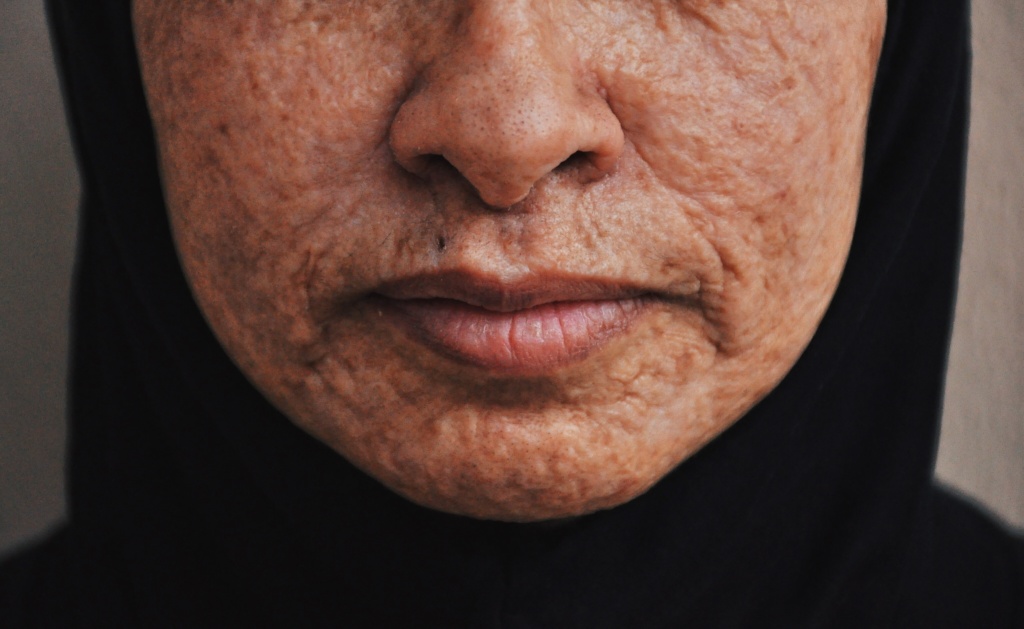
It is used for all sorts of skin remedies, including fighting acne, reducing wrinkles, reversing sun damage, shrinking pores — all the good stuff. On the down side some people have reported increased redness, itchy skin and other adverse effects. In this blog post I will be looking into whether Retinol creams & serums are worth the hype and if you should be using it.
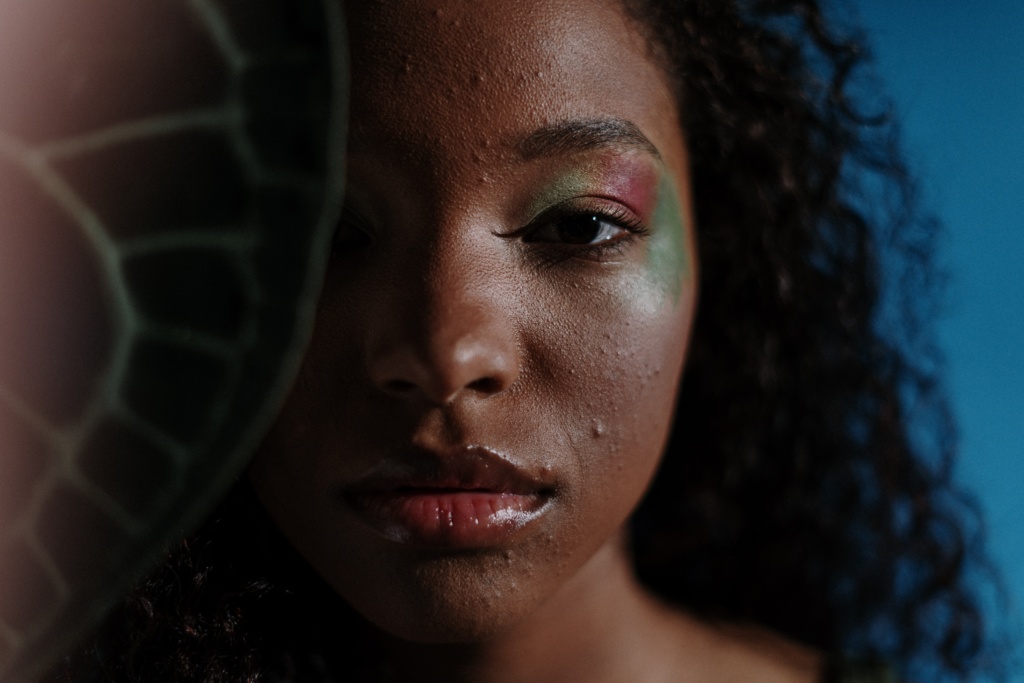
What is Retinol?
Retinol and retinoids aren’t exactly the same thing, but they are both chemical derivatives of vitamin A, a central vitamin needed for many functions of the body. Both have functions in skin care, particularly for reducing wrinkles, improving collagen production and treating acne, among other functions.
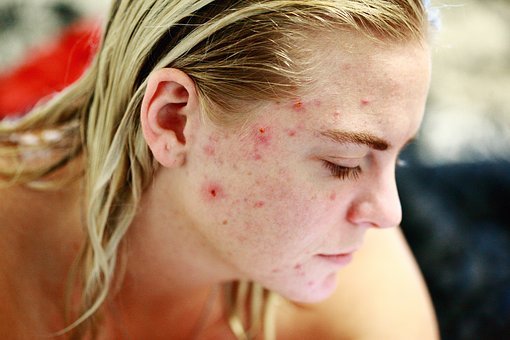
Retinols and retinoids are born of the same vitamin; but retinoids are more potent and are classified as a pharmaceutical, meaning you need a prescription to use a retinoid cream. Although recently, an over the counter retinoid (adapalene 0.1% gel) has become available without a prescription. Retinols have a naturally weaker affect and are found in over-the-counter creams broadly known as cosmeceuticals.
Retinols can still be effective, but the results won’t be as prevalent and will take longer to appear. That said, they’re very accessible, and you don’t need a prescription. Vitamin A is found in eggs, tons of green veggies, carrots and loads of different berries.

What does Retinol Do?
Essentially we can break the functions of Retinol creams & serum into 4 parts.
- Prevents Wrinkles – It not only smooths your current fine lines and wrinkles, but also minimizes the new ones that form.
- Brightens dull skin – It exfoliates on a cellular level, revealing brighter, smoother, and, quite literally, newer skin.
- Treats Acne – It not only regulates oily skin, but also keeps pores from clogging, resulting in fewer blackheads, cysts, and pimples.
- Fades Dark Spots – Over time, it’ll even out your complexion, fading sun spots, acne scars, hyperpigmentation, and dark spots.

How does Retinol slow down the aging process?
Up until your early-30s, your cells turn over every 28 days, creating a fresh layer of untouched, new skin. But after you hit your mid-30s, your cell regeneration slows down, turning over every 50, 60, or 70 days. And that slower cell regeneration is what causes your face to look dry, dull, and wrinkled aka ‘aging’.
Retinol when added to your skincare routine – tricks your skin into believing it is younger than what it really is. It speeds up cell regeneration and most importantly increases the production of collagen.
It is this effect on collagen that causes the real decline in the aging process. With the increase in collagen – (and elastin) – your skin will also appear brighter, plumper with less redness as well. It is important to note that you won’t see an effect overnight – in fact it might take up to 6 months and this depends on the strength of retinoids that you use (see more below).
How does Retinol treat Acne?
Due to its powerful cell renewal property, retinol can be incredibly helpful for people who often have acne and breakouts and is best for sensitive skin. It helps to normalize cell turnover and has an exfoliating effect that stops pores from clogging and pimples, blackheads and cysts from forming. At Glamore Cosmetics is a Retinoage Range which has all the right components to not only fight aging but also acne and dark spots.
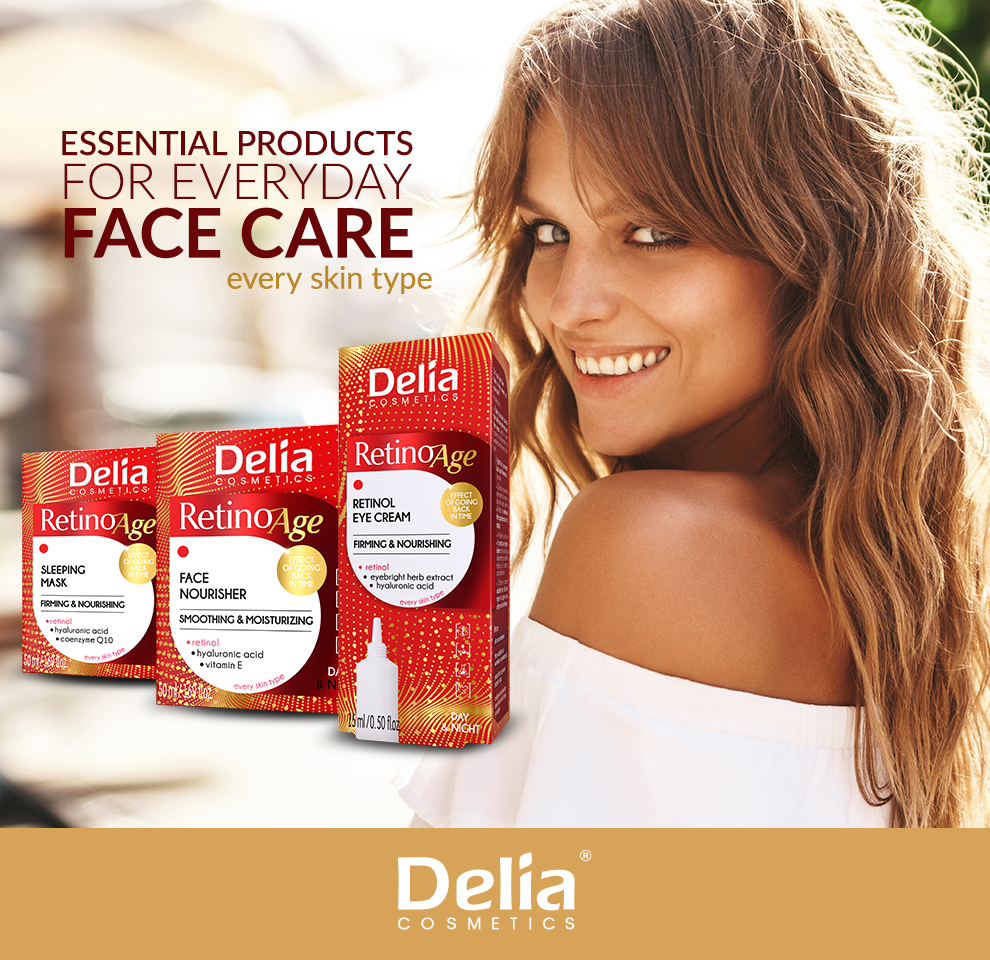
Which product is right for me?
Your skin type will determine which product is right for you! If you have sensitive/ dry skin start with the lowest dose and only once a week at night. The lowest dose is called retinyl palmitate and can easily be found at pharmacies (over the counter) without a prescription.
If you have sensitive/ dry skin ensure that the product is cruelty free and hypoallergenic – you can read my blog post on why this is important. For other skin types you can use products containing Retinol (like Retinoage from Delia Cosmetics) only increasing the strength after one year of consistent use. No matter the concentration of Retinol it will work – obviously the lower dose will take longer than the higher one but for flawless skin this product is perfect.
Added bonus – extra tips and precautions
When using products containing Vitamin A there has been some bad press – simply because the product has been used incorrectly without precaution.
People have experienced extreme dryness, flakey skin, irritation, breakouts and even burning. The main reasons for this is lack of precaution – this isn’t a skincare product that you can slap onto your skin day and night and expect results. It is a very powerful hero skincare product that needs to be treated with respect and here are some tips that must be followed:
- Choose the right concentration for YOUR skin – i.e. start at the lowest dose here is the rule of thumb for each Vitamin A derivative. Retinyl palmitate for sensitive skin, retinol or retinaldehyde for “normal” skin, or adapalene for oily, acne-prone skin.
- Introduce it gradually into your skincare routine – this isn’t something to be like ‘go big or go home’ its more like ‘less is more’. Start with one/ two nights per week and then wait to see how your skin adjusts. Remember you are waking your skin up so it will need time to adjust. Once your skin is okay on that level then increase it to 3 nights a week and so on. If you get a reaction – don’t stop – keep going and treat the symptoms (for instance if your skin gets very dry use treatments that will counteract the dryness etc.).
- Alternate with other harsh products – like peels/ treatments. Have you heard the saying too much of something can be a bad thing? Don’t use acne products, acids, or peels on your face on the nights you use a retinoid, or you’ll risk irritating or burning your skin.
- Use sunscreen in the morning especially with higher doses of Vitamin A. Retinoids can make skin extra sensitive to the sun, causing sunburns or discoloration, so load up on SPF 30 or higher each morning. And this is another reason to use at night but gradually as your skin gets stronger you will be able to use it in the morning as well.
Can Retinol help with Acne Caused by Masks?
Yip this is a serious question because hello 2021 hello Masks and lots of people are having a problem with Mask acne!
Mask acne is acne caused by wearing masks so it is predominantly in the areas around the chin and on the sides of the cheeks. However I think acne has a life of its own so basically it does its own thing. Retinol creams/ serums will definitely help with acne especially being able to clean out blocked pores and regeneration of cells in the epidermis.
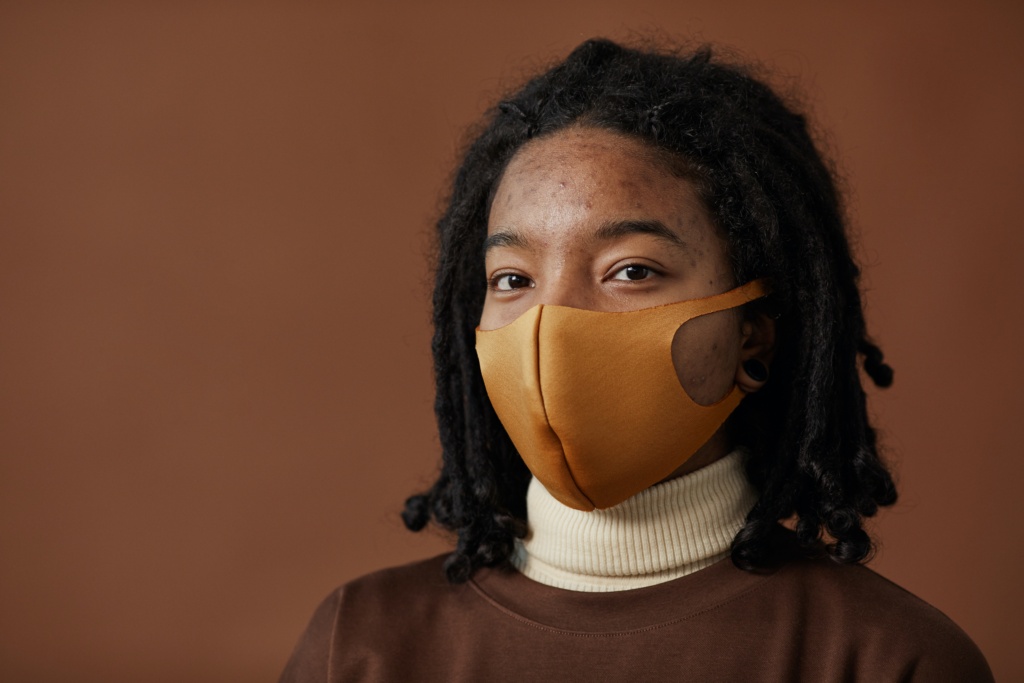
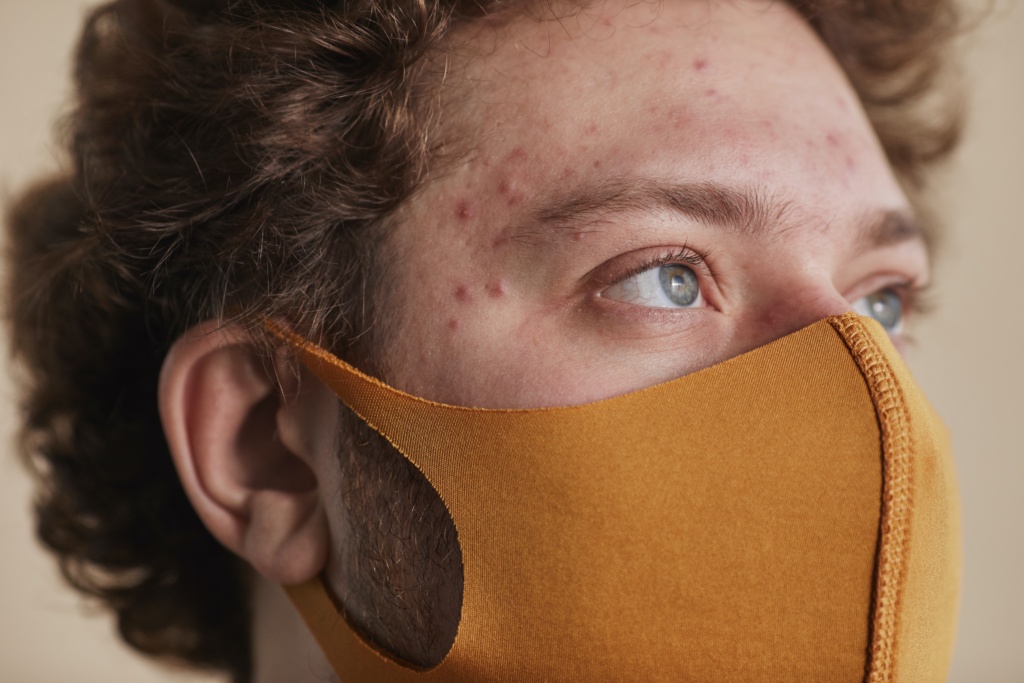
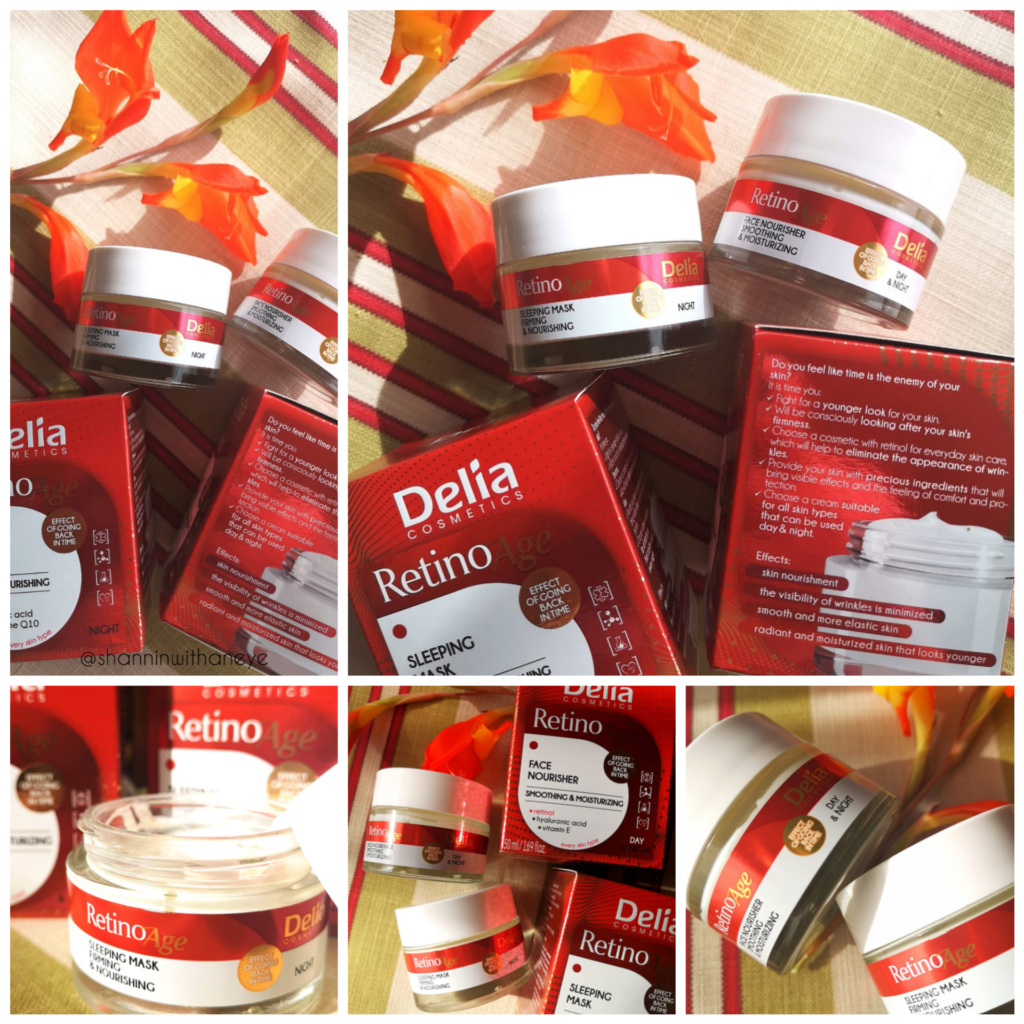
In conclusion it is important to remember that when including Retinol into your skincare regime to know that there is an adjustment period. You will need to wait for your skin to adjust to the increased collagen production which means that your cells will grow faster. This regeneration in cell growth can lead to dryness itchy skin – watch carefully and monitor the adjustment period. Introduce retinol skincare slowly (baby steps) it will work and is definitely worth the hype.
Don’t hesitate to let me know if you have any questions.





